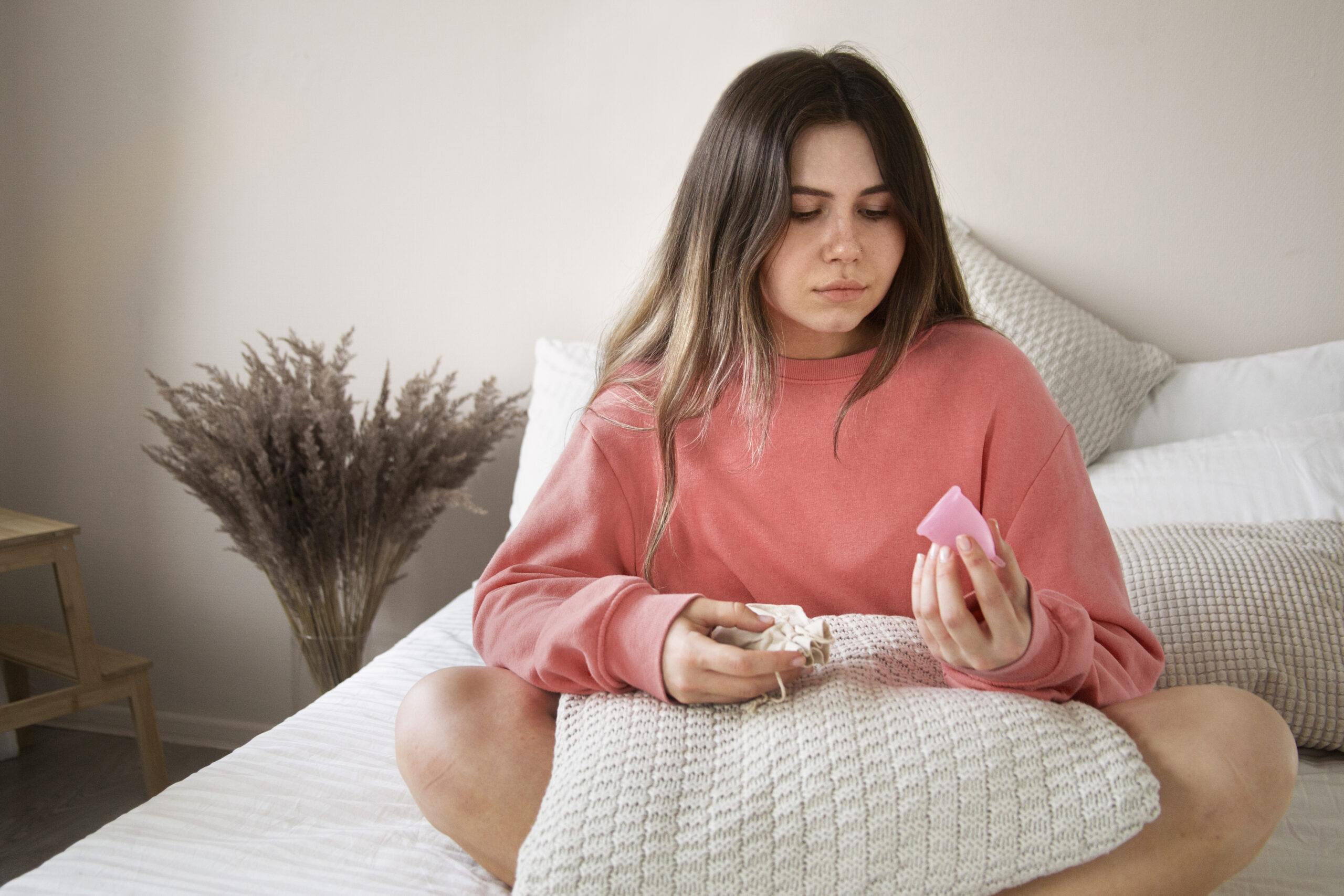If you are looking for irregular periods treatment for unmarried women, you are not alone. Menstrual irregularities are one of the most common health issues faced by young women, and they often create confusion, stress, and fear about fertility or future health. The good news is that with timely diagnosis and the right approach, both medical and holistic irregular cycles can be managed successfully.
Irregular periods occur when your monthly cycle does not follow a predictable pattern. Instead of arriving every 28–30 days, cycles may come earlier, much later, or sometimes not at all. While occasional variation is considered normal, repeated irregularities signal an underlying imbalance. For unmarried women, causes can range from lifestyle issues such as stress, poor diet, or lack of sleep, to medical conditions like PCOS, thyroid dysfunction, or hormonal fluctuations.
This article provides a complete guide to irregular periods treatment for unmarried women, covering medical options, holistic remedies, lifestyle changes, prevention tips, and natural solutions that support long-term balance.
What Are Irregular Periods?
Menstrual cycles are generally considered normal when they occur every 21–35 days. Each cycle should follow a fairly consistent pattern of flow and duration. When your period does not come within this range, or if the bleeding pattern changes drastically, it may be classified as irregular.
Signs of irregular periods include:
- Cycles shorter than 21 days or longer than 35 days
- Completely missed periods for two or more consecutive months without pregnancy
- Very heavy or extremely light bleeding compared to your usual flow
- Spotting between cycles or prolonged bleeding beyond 7 days
For unmarried women, irregular cycles are often overlooked or dismissed. However, seeking proper irregular periods treatment for unmarried women is essential because irregularities may signal deeper hormonal issues that need attention.
Causes of Irregular Periods in Unmarried Women
The causes of irregular periods are diverse, and understanding them is the first step toward effective treatment.
- Lifestyle-Related Causes
- High levels of stress from studies, work, or relationships
- Disturbed sleep patterns or lack of sufficient rest
- Over-exercising or complete lack of physical activity
- Poor diet lacking essential nutrients, vitamins, and minerals
- Hormonal Imbalances
- PCOS (Polycystic Ovary Syndrome): A major cause of irregular periods in young unmarried women
- Thyroid disorders: Both hyperthyroidism and hypothyroidism can affect menstrual cycles
- Insulin resistance: Often linked with PCOS, leading to disrupted ovulation
- Medical Conditions
- Endometriosis causing painful and irregular bleeding
- Autoimmune disorders that affect reproductive health
- Eating disorders such as anorexia or bulimia affecting hormonal levels
- Additional Factors
- Sudden weight loss or gain
- Excessive use of certain medications or contraceptives
- Obesity, which alters estrogen production
Understanding which category you fall into can help determine the right irregular periods treatment for unmarried women, whether it’s medical, lifestyle-based, or holistic.
Why Timely Treatment Matters
Many women ignore irregular periods, thinking they are harmless. However, untreated irregular cycles can lead to serious consequences.
Potential health risks include:
- Infertility or difficulty conceiving later in life due to lack of ovulation
- Osteoporosis or reduced bone density from prolonged estrogen imbalance
- Endometrial hyperplasia or thickening of the uterine lining, which increases cancer risk
- Severe anemia caused by prolonged heavy bleeding
- Emotional issues such as anxiety, low self-esteem, or stress
For unmarried women, addressing these issues early through irregular periods treatment for unmarried women ensures long-term reproductive health, balanced hormones, and overall well-being.
Conventional Treatments
Doctors often recommend medical treatments based on the root cause of irregular periods.
Common medical treatments include:
- Hormonal therapy: Birth control pills or hormone replacement therapy to regulate cycles
- Thyroid medication: For those diagnosed with hyperthyroidism or hypothyroidism
- Metformin or other insulin-sensitizing drugs: For women with PCOS and insulin resistance
- Fertility treatments: Ovulation induction or assisted reproductive technologies if pregnancy is planned later
While effective, conventional methods often address symptoms rather than correcting the underlying imbalance. This is why combining them with holistic approaches often produces the best results in irregular periods treatment for unmarried women.
Natural & Lifestyle Remedies (Holistic Approach)
Holistic methods target the root cause of hormonal imbalance and support natural healing.
- Balanced Diet
- Include whole grains, fresh vegetables, fruits, legumes, nuts, and seeds
- Focus on Omega-3 rich foods like flaxseeds, chia seeds, and salmon
- Avoid refined carbs, processed sugar, and fried foods
- Stress Management
- Regular yoga and meditation practices calm the nervous system
- Deep breathing exercises lower cortisol, a stress hormone that disrupts cycles
- Proper sleep (7–8 hours per night) regulates hormonal function
- Healthy Weight Management
- Moderate exercise like walking, swimming, or cycling improves metabolism
- Avoid over-exercising, which can suppress ovulation
- Hydrate well with 2–3 liters of water daily
- Herbal Remedies (only with medical guidance)
- Ashwagandha for stress balance
- Cinnamon to improve insulin sensitivity
- Vitex (chasteberry) to regulate hormones naturally
- Alternative Therapies
- Acupuncture has been shown to regulate cycles in some women
- Ayurveda offers customized remedies based on body constitution
These approaches make irregular periods treatment for unmarried women sustainable, natural, and side-effect free.
Additional Hormone Support
Alongside holistic practices, natural supplements can further support cycle regularity. One option is Hormone Balance for Women – Healthy Period Cycles & Fertility Support. This formulation is designed to balance hormones, support healthy menstrual cycles, improve fertility, and ease symptoms of peri-menopause naturally.
Self-Care & Prevention Tips
Along with treatments, prevention is equally important for unmarried women dealing with irregular cycles.
Daily self-care habits include:
- Track your cycle with a diary or mobile app
- Eat balanced meals and avoid skipping breakfast
- Exercise moderately and consistently
- Avoid smoking and limit caffeine or alcohol
- Visit a gynecologist at least once a year for routine check-ups
When to seek urgent help:
- Missing periods for three months in a row without pregnancy
- Extremely heavy bleeding that soaks pads frequently
- Severe pelvic pain during or outside periods
- Signs of anemia like fatigue, dizziness, or pale skin
Preventive care ensures that you won’t need repeated irregular periods treatment for unmarried women later in life.
Conclusion
Irregular periods can be worrying, but they are not untreatable. By combining medical care with holistic lifestyle practices, you can restore hormonal balance, regulate cycles, and protect your long-term reproductive health. Early intervention is the key to success.
If you are experiencing irregular cycles, don’t wait until symptoms worsen, seek out the right irregular periods treatment for unmarried women today and take charge of your health.
“Don’t let irregular periods control your life. At Smriti Kochar’s Ultra-Wellness Program, we address the root causes of hormonal imbalances through 100% natural interventions, no medicines, just proven lifestyle transformations. With a 98% success rate in restoring balance, your journey to healthy, regular cycles can begin today. Start Your Healing Journey Now.”
Read Our Latest Blogs
Reasons for Irregular Periods | Irregular Periods After Delivery | Irregular Periods Solution | How to Treat Irregular Periods | My 15 Year Old Daughter Has Irregular Periods | Why Irregular Periods Happen
Frequently Asked Questions
Ans: Yes, PCOS is one of the most common causes of irregular cycles in unmarried women and often leads to hormonal imbalance.
Ans: A delay of up to 7 days is considered normal. Longer delays may require medical evaluation.
Ans: Yes, irregular ovulation may reduce fertility, but early treatment can restore normal cycles and improve chances of conception.
Ans: Home remedies such as herbal teas, yoga, and stress management help balance hormones, but should be combined with medical guidance.
Ans: Yes, chronic stress raises cortisol levels, which interferes with reproductive hormones and delays cycles.
Ans: Only under doctor’s supervision. Pills regulate cycles temporarily but do not cure root causes.
Ans: A nutrient-rich diet stabilizes blood sugar and hormones, while junk food and excess sugar can worsen irregularity.
Ans: Yoga and moderate exercise improve circulation, reduce stress, and balance hormones. While they support long-term regulation, complete cure may require combined treatment.





